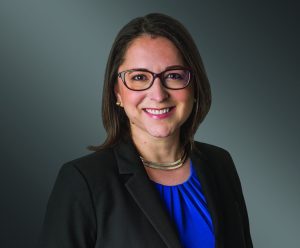The U.S. government continues to be highly focused on anti-corruption efforts in Latin America.
While criminal prosecutions brought under the Foreign Corrupt Practices Act (FCPA) remain at the core of these endeavors, the Biden Administration has made combatting international corruption in all its forms a key component of U.S. foreign policy and national security interests.
Specifically, the Memorandum on Establishing the Fight Against Corruption as a Core United States National Security Interest requires 15 executive branch departments and agencies to submit recommendations to the President by the end of the year to enhance U.S. anti-corruption efforts.
The memo calls for a detailed, top to bottom review aimed at strengthening the government’s ability to root out corruption through greater cooperation within the U.S. and between U.S. agencies and their foreign counterparts. Given the geopolitical realties of U.S. foreign policy in Latin America, it seems likely that the results of the review will have ripple effects on companies and individuals throughout the region.
Congress has also given U.S. law enforcement and regulatory agencies new tools, some specific to Latin America, to fight corruption and money laundering.
At the beginning of 2021, Congress passed the Anti-Money Laundering Act of 2020 (AMLA), an important development considering that the Department of Justice is increasingly using money laundering statutes to prosecute corruption and foreign bribery cases against companies and public officials in Latin America.
The FCPA Unit at the Department of Justice (DOJ) has brought almost as many cases under other criminal statutes as they have under the FCPA, a trend likely to continue because several provisions of the AMLA make it easier for U.S. law enforcement to obtain evidence from financial institutions that can in turn be used in FCPA cases. For example, AMLA expands the government’s authority to subpoena evidence from foreign banks that maintain correspondent accounts in the U.S.
The AMLA also gives U.S. law enforcement agencies and financial institutions wider latitude to share financial information across borders. Removing obstacles to information sharing will make it easier for U.S. authorities to target international corruption by making it harder to hide financial transactions in furtherance of political corruption.
 Kyle R. Freeny
Kyle R. FreenyMeanwhile, other provisions of the AMLA will make it more difficult to shield illicit proceeds from government scrutiny and will criminalize certain false statements and material omissions about the nature and source of foreign officials’ funds.
Through the recently passed Northern Triangle Enhanced Engagement Act, the State Department and other federal agencies will have an increased focus on combatting corruption in El Salvador, Guatemala, and Honduras.
The Act requires the State Department to identify individuals who have “knowingly engaged in actions that undermine democratic processes or institutions, engaged in significant corruption, or obstructed investigations into such acts of corruption” in these three countries. In early July, the State Department submitted a list of 55 names to be included on the Engel list, named for former U.S. Representative Eliot Engel.
Most of the people on the list are current or former public officials, though some private citizens were included. The only sanction is visa revocation, but the legislation and policy behind the Act suggest that the U.S. government will be paying more attention to this region in the future.
About the Authors
Greenberg Traurig, P.A. Shareholder Benjamin G. Greenberg is the former U.S. Attorney for the Southern District of Florida. He is a seasoned litigator who represents corporations and individuals in criminal and civil government investigations involving the Foreign Corrupt Practices Act (FCPA), health care fraud, SEC matters, financial institution fraud, money laundering, and the False Claims Act (FCA). His clients include private equity funds, pharmaceutical and medical device manufacturers, banks, health care providers, and international companies in the technology, financial services, and investment space.
Greenberg Traurig, LLP Shareholder Kyle R. Freeny is a skilled trial attorney and former federal prosecutor for the Special Counsel’s Office and the Department of Justice, Criminal Division’s Money Laundering and Asset Recovery Section (MLARS). She focuses her practice on white collar criminal defense, government and internal investigations, and anti-money laundering (AML), and international corruption matters.
